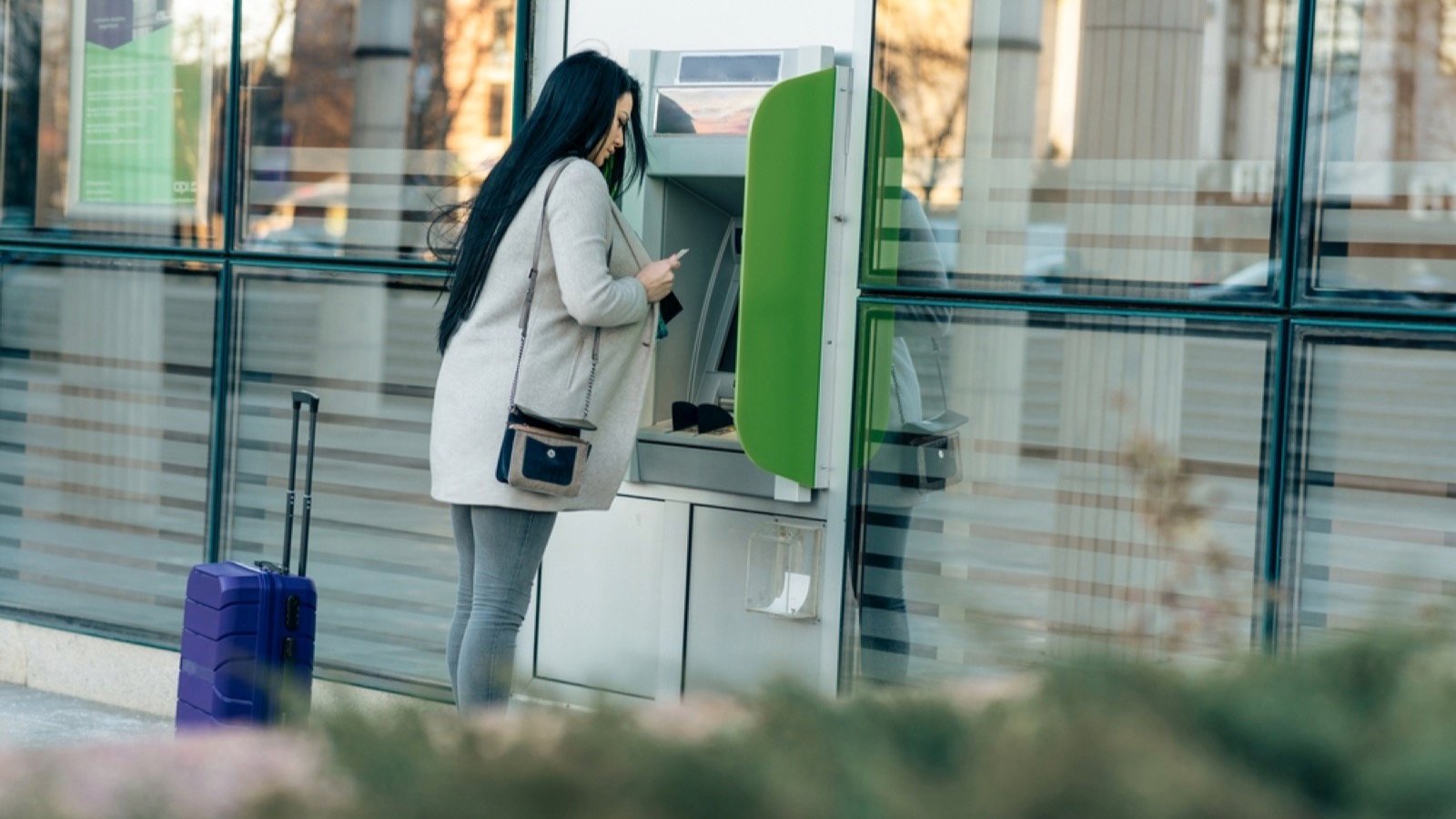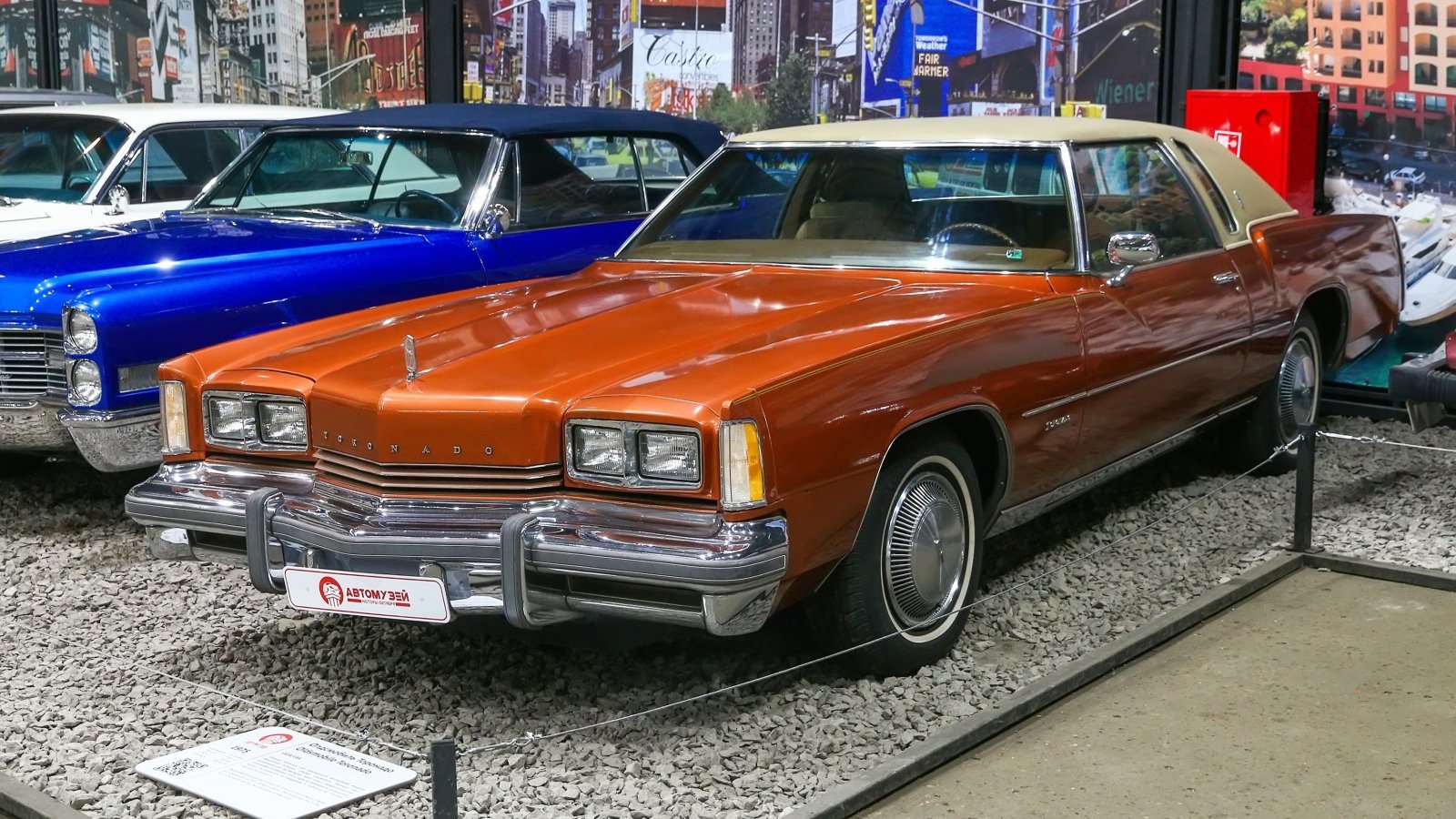Security Alert May 17, 2024
Worldwide caution, update may 10, 2024, information for u.s. citizens in the middle east.
- Travel Advisories |
- Contact Us |
- MyTravelGov |

Find U.S. Embassies & Consulates
Travel.state.gov, congressional liaison, special issuance agency, u.s. passports, international travel, intercountry adoption, international parental child abduction, records and authentications, popular links, travel advisories, mytravelgov, stay connected, legal resources, legal information, info for u.s. law enforcement, replace or certify documents, before you go.
Learn About Your Destination
While Abroad
Emergencies
Share this page:
Crisis and Disaster Abroad: Be Ready
What the Department of State Can and Can't Do in a Crisis
Information for U.S. Citizens about a U.S. Government-Assisted Evacuation
Traveler's Checklist
Safety and Security Messaging
Best Practices for Traveler Safety
Staying Connected
Smart Traveler Enrollment Program (STEP)
Traveler Information
LGBTQI+ Travelers
Adventure Travel
High-Risk Area Travelers
Travelers with Dual Nationality
Journalist Travelers
Faith-Based Travelers
Pilgrimage Travelers (Hajj and Umrah)
U.S. Students Abroad
Cruise Ship Passengers
Women Travelers
Travelers with Disabilities
Older Travelers
U.S. Volunteers Abroad
Travelers with Pets
Travelers With Firearms
Travel Agents
Travel Safety - Race and Ethnicity
U.S. Travelers in Europe's Schengen Area
Your Health Abroad
Insurance Coverage Overseas
Driving and Road Safety Abroad
Customs and Import Restrictions
Information for U.S. Citizens in Russia – Travel Options Out of Russia
Lodging Safety
Paris 2024 Olympics and Paralympics
DHS Trusted Traveler Programs
Get Required Documents
Safeguard Your Documents! Make copies of all your travel documents. Leave one copy with a trusted friend or relative and carry the other separately from your original documents. Also take a photograph of your travel documents with your phone to have an electronic copy.
- Passport: Check your passport expiration dates as soon as you start planning a trip, and remember passports issued to children under 16 are only valid for only five years. Some countries – including most of Europe – will require that your passport expiration date is at least six months away. If you need a new passport, apply early to allow for delays; click here for passport information.
- Visas: Check with the embassy of your destination regarding visa requirements.
- Medications: Some prescription drugs (including narcotics) and some U.S. over-the-counter medications are illegal in other countries. Check with the embassy of your destination(s) about regulations and documentation before you travel.
- Consent for Travel with Minors: If you are traveling alone with children, foreign border officials may require custody documents or notarized written consent from the other parent. Check with the embassy of your foreign destination before traveling to see what you may need.
- International Driving Permit: Many countries do not recognize a U.S. driver's license, but most accept an International Driving Permit (IDP). You may also need supplemental auto insurance. Read more about driving and road safety abroad before you go.
Importance of Travel Insurance
- The U.S. government does not provide insurance for U.S. citizens overseas. We do not pay medical bills or unexpected costs. We highly recommend that you purchase travel insurance before you travel to cover emergency medical care, either as part of or separate from trip cancellation insurance.
- Health Insurance: Medical facilities and providers abroad may require cash up front and may not accept U.S. insurance plans. U.S. Medicare/Medicaid does not provide coverage outside the United States. Check your health care policy to see if it will cover you overseas. If not, consider buying supplemental insurance . Make sure the insurance you purchase covers any special medical needs or risks you anticipate on your trip.
- Emergency Medical Evacuation: Evacuation for medical treatment can cost more than $100,000. You should strongly consider purchasing medical evacuation insurance in case of emergency overseas.
Get Informed
- Smart Traveler Enrollment Program (STEP) : Enroll at step.state.gov to receive travel and security updates about your destination, and to help us reach you in an emergency.
- Safety and Security Information: Read the Travel Advisory and Alerts for the countries you will be visiting at travel.state.gov/destination .
- Crisis Planning: Read Crisis Abroad: Be Ready
- Health Precautions: Read Your Health Abroad and check out recommendations for vaccinations and other health considerations from the U.S. Centers for Disease Control (CDC) and World Health Organization (WHO) .
- Money Matters: Before going abroad, notify your bank and credit card companies of your travel, and check exchange rates. For information about using cash, debit/credit cards, and ATMs overseas, read the country information page for your destination .
- Follow us on TravelGov on Twitter , Facebook , or Instagram
Every traveler is unique. Learn more before you travel.
Other Information for U.S. Citizen Travelers
- Information for Travel Agents
- Travel to High-Risk Areas
- Traveling with firearms
- Traveling with a pet
- Travel during tropical storm season
- FBI Safety and Security Information for U.S. Students Traveling Abroad
- Customs and import restrictions
- Global Entry
- TSA Pre-check
Emergency Assistance
Sometimes, in spite of careful planning, things still go wrong during a trip abroad. Contact the nearest U.S. embassy or consulate overseas or our Washington, D. C. office ( 888-407-4747 or 202-501-4444 ).
The Department of State assumes no responsibility or liability for the professional ability or reputation of, or the quality of services provided by, the entities or individuals whose names appear on or are linked to the above page. Inclusion of private groups on this page is in no way an endorsement by the Department or the U.S. government. The order in which names appear has no significance. The Department is not in a position to vouch for the information.
Download the checklist
Download the Traveler's Checklist before you go!
Enroll in STEP

Subscribe to get up-to-date safety and security information and help us reach you in an emergency abroad.
Recommended Web Browsers: Microsoft Edge or Google Chrome.
Learn about your destination
Make two copies of all of your travel documents in case of emergency, and leave one with a trusted friend or relative.
External Link
You are about to leave travel.state.gov for an external website that is not maintained by the U.S. Department of State.
Links to external websites are provided as a convenience and should not be construed as an endorsement by the U.S. Department of State of the views or products contained therein. If you wish to remain on travel.state.gov, click the "cancel" message.
You are about to visit:
Official websites use .gov A .gov website belongs to an official government organization in the United States.
Secure .gov websites use HTTPS A lock ( A locked padlock ) or https:// means you've safely connected to the .gov website. Share sensitive information only on official, secure websites.
- Create Account
Travel Documents
If you wish to return to the United States lawfully after traveling outside the United States, you generally must have a:
- Valid entry document, such as a Permanent Resident Card (Green Card) or nonimmigrant visa; or
- Valid and unexpired travel document.
The type of document you need varies depending on your immigration status (including lawful permanent resident status) or if you have a pending immigration benefit request.
You generally need to apply for and obtain a travel document before you leave the United States. Before planning travel, please consider USCIS processing times . If you have an urgent need to travel outside the United States, see our Expedite Request and Emergency Travel pages for additional information.
File Form I-131, Application for Travel Document , to request travel documents, including:
- Advance parole document for noncitizens in the United States seeking to return after temporary travel abroad (including advance permission to travel for Commonwealth of the Northern Mariana Islands (CNMI) long-term residents);
- Refugee travel document;
- Reentry permit; or
- Temporary Protected Status travel authorization.
If you are already outside the United States and need to return, but do not have your reentry permit, Green Card, advance parole document, or Temporary Protected Status travel authorization document because it was lost, stolen, or destroyed, see Form I-131A, Application for Carrier Documentation.
NOTE: If you file Form I-131, Application for Travel Document, to request an advance parole document to authorize your return to the United States after temporary travel abroad and you depart the United States before we issue your advance parole document, we will consider your Form I-131 application abandoned unless you were previously issued an advance parole document that remains valid for the entire time you are outside the United States.
Travel outside of the United States may have severe immigration-related consequences.
Admission or parole into the United States is not guaranteed even if you have the appropriate documents. You are still subject to immigration inspection or examination at a port of entry to determine whether you may be admitted or paroled into the country and whether you are eligible for the immigration status you seek.
Additional cautions for people in certain circumstances are summarized below.
If you are a nonimmigrant
If you have been admitted as a nonimmigrant and have filed Form I-539, Application to Extend/Change Nonimmigrant Status , to change to a different nonimmigrant status, we generally will consider your Form I-539 abandoned if you leave the United States before we make a decision on your application, though there are some exceptions. Having an advance parole document does not prevent abandonment of the change of status application. When you return to the United States, you are likely to be denied admission if your current status has expired.
If you have a pending Green Card application
In general, if you are applying for adjustment of status (a Green Card) and leave the United States without the appropriate travel documentation (for example, an advance parole document), you may not be allowed to reenter the United States when you return. Even if you are allowed to reenter, you may be found to have abandoned your pending application for adjustment of status.
If you have unlawful presence or a removal order
If you have accrued unlawful presence while in the United States or have a removal order, then you may be found inadmissible if you seek admission after a departure from the United States, even if you have a travel document. We follow the Board of Immigration Appeals decision in Matter of Arrabally and Yerrabelly , which held that travel on advance parole does not constitute a “departure” for purposes of triggering the 10-year unlawful presence bar under Immigration and Nationality Act (INA) § 212(a)(9)(B)(i)(II) for applicants for adjustment of status. We also apply this analysis to INA § 212(a)(9)(B)(i)(I) and to individuals with TPS who travel on TPS travel authorization. For more information, please see Section 212(a)(9) of the Immigration and Nationality Act (INA) and the Unlawful Presence and Inadmissibility page.
Advance parole allows you to travel back to the United States without applying for a visa. A transportation company (airlines) can accept an advance parole document instead of a visa as proof that you are authorized to travel to the United States. An advance parole document does not replace your passport.
Please note that having an advance parole document does not guarantee that you will be allowed to reenter the United States. At the airport or border, a U.S. Customs and Border Protection (CBP) officer will make the final decision about whether to allow you to reenter the United States.
Advance parole is most commonly used when someone has a pending:
- Form I-485, Application to Register Permanent Residence or to Adjust Status : If you depart the U.S. while your Form I-485 is pending without first obtaining advance parole, USCIS will deny your case unless you fit into a narrow exception for people with certain nonimmigrant statuses.
- Form I-589, Application for Asylum and for Withholding of Removal : If you are an asylum applicant and you intend to travel outside the United States and return, you must apply for and receive advance parole. If you leave the United States without first obtaining advance parole, we will assume that you have abandoned your asylum application.
For information on how to apply for advance parole, go to our Form I-131, Application for Travel Document page.
USCIS issues refugee travel documents to people with refugee or asylum status and to lawful permanent residents who obtained their Green Cards based on their refugee or asylee status.
You must have a refugee travel document to return to the United States if you:
- Have refugee or asylee status but are not a lawful permanent resident (Green Card holder); or
- Are a derivative asylee or refugee.
If you do not obtain a refugee travel document before you leave the U.S., you may be unable to re-enter the United States or you may be placed in removal proceedings before an immigration judge.
For information on how to apply for a refugee travel document, go to our Form I-131, Application for Travel Document page.
Permanent or conditional residents should apply for a re-entry permit if they will be outside the United States for one year or more. While it is valid, a re-entry permit allows you to apply for admission to the U.S. without having to obtain a returning resident visa from a U.S. Embassy or Consulate. Go to our Form I-131, Application for Travel Document page for information on how to apply.
Travel authorization for Temporary Protected Status (TPS) beneficiaries allows you to travel back to the United States and, if you are eligible, be inspected and admitted into TPS. A transportation company (such as an airline) can accept a TPS travel authorization document instead of a visa as proof that you are authorized to travel to the United States. A TPS travel authorization document does not replace your passport.
Please note that having a TPS travel authorization document does not guarantee that you will be allowed to reenter the United States. At the airport or border, a U.S. Customs and Border Protection (CBP) officer will make the final decision about whether to allow you to reenter the United States.
If we are still adjudicating your application for TPS and you wish to travel outside the United States, you may request advance parole.
For information on how to apply for TPS travel authorization, go to our Form I-131, Application for Travel Document , page.
Carrier documentation allows an airline or other transportation carrier to board permanent residents who have temporarily been outside the United States and whose Green Card or re-entry permit has been lost, stolen or destroyed. If you are a permanent resident in this situation, you may need to file a Form I-131A. Go to the Form I-131A, Application for Travel Document (Carrier Documentation) for more information.

An official website of the United States government
Here’s how you know
Official websites use .gov A .gov website belongs to an official government organization in the United States.
Secure .gov websites use HTTPS A lock ( Lock A locked padlock ) or https:// means you’ve safely connected to the .gov website. Share sensitive information only on official, secure websites.
Acceptable Identification at the TSA Checkpoint

Adult passengers 18 and older must show valid identification at the airport checkpoint in order to travel.
- Beginning May 7, 2025, if you plan to use your state-issued ID or license to fly within the U.S., make sure it is REAL ID compliant . If you are not sure if your ID complies with REAL ID, check with your state department of motor vehicles.
- State-Issued Drivers License or State-Issued ID
- U.S. passport
- U.S. passport card
- DHS trusted traveler cards (Global Entry, NEXUS, SENTRI, FAST)
- U.S. Department of Defense ID, including IDs issued to dependents
- Permanent resident card
- Border crossing card
- An acceptable photo ID issued by a federally recognized , Tribal Nation/Indian Tribe
- HSPD-12 PIV card
- Foreign government-issued passport
- Canadian provincial driver's license or Indian and Northern Affairs Canada card
- Transportation worker identification credential
- U.S. Citizenship and Immigration Services Employment Authorization Card (I-766)
- U.S. Merchant Mariner Credential
- Veteran Health Identification Card (VHIC)
In coordination with its DHS counterparts, TSA has identified acceptable alternate identification for use in special circumstances at the checkpoint.
A weapon permit is not an acceptable form of identification. A temporary driver's license is not an acceptable form of identification.
Beginning May 7, 2025, if you plan to use your state-issued ID or license to fly within the U.S., make sure it is REAL ID compliant . If you are not sure if your ID complies with REAL ID, check with your state department of motor vehicles.
Learn more about flying with a REAL ID .
TSA currently accepts expired ID up to a year after expiration, for the above listed forms of identification. DHS has extended the REAL ID enforcement deadline to May 7, 2025. Learn more about REAL ID on TSA’s REAL ID webpage.
TSA does not require children under 18 to provide identification when traveling within the United States. Contact the airline for questions regarding specific ID requirements for travelers under 18.
Forgot Your ID?
In the event you arrive at the airport without valid identification, because it is lost or at home, you may still be allowed to fly. The TSA officer may ask you to complete an identity verification process which includes collecting information such as your name, current address, and other personal information to confirm your identity. If your identity is confirmed, you will be allowed to enter the screening checkpoint. You will be subject to additional screening, to include a patdown and screening of carry-on property.
You will not be allowed to enter the security checkpoint if your identity cannot be confirmed, you choose to not provide proper identification or you decline to cooperate with the identity verification process.
TSA recommends that you arrive at least two hours in advance of your flight time.
Names With Suffixes
TSA accepts variations on suffixes on boarding passes and ID. Suffixes are not required on boarding passes. If there is a suffix on the boarding pass, and there is not one on the ID or vice versa, that is considered an acceptable variation.
If your identity cannot be verified, you will not be allowed to enter the screening checkpoint.

An official website of the United States government
Here’s how you know

Official websites use .gov A .gov website belongs to an official government organization in the United States.
Secure .gov websites use HTTPS A lock ( Lock A locked padlock ) or https:// means you’ve safely connected to the .gov website. Share sensitive information only on official, secure websites.

- For U.S. Citizens/Lawful Permanent Residents
- Know Before You Go
Before Your Trip
Booking your tickets.
Match Names on Tickets and Documents
Purchase your travel tickets in the exact same name that appears on your passport or official ID. Ensure that all travel documents match that name precisely.
If the names don't match, your travel carrier or the Transportation Security Administration may require additional documents to verify your identity before allowing you to board.
Each Country is Different
Learn the required travel documents for each country you will visit. Find out about specific travel warnings, U.S. import restrictions, and other rules that apply to the countries on your itinerary by visiting www.state.gov/travelers .
Find the latest on making your return to the United States problem free - go to www.cbp.gov/travel .
Documents You Will Need
Carry - do not pack - all travel documents.
- All U.S. citizens need U.S. passport books if re-entering by air. Land and sea border crossings accept additional travel documents, such as U.S. Passport cards and Trusted Traveler cards. Child travelers have additional options - see the Traveling with Children section.
- Green card (Form I-551), or document for lawful permanent residents, or advance parole (Form I-512) if your Form I-551 is pending.
- A visa or other entry document for the countries you will visit.
- Receipts or registration ( CBP Form 4457 ) for new electronics, such as a camera or laptop, that you are taking abroad. (Only suggested if the goods are less than six months old.)
- Proof of rabies vaccination for dogs traveling abroad. Check the requirements for other pets at www.aphis.usda.gov .
- Valid license for driving overseas and for use as a second form of photo ID.
- Permits and/or certificates if bringing restricted animal or plant products - go to www.aphis.usda.gov .
- Medications in their original packages. Bring only the amount of medication you will need. Prescription medications have to be under the traveler's name.
- Envelope to hold the receipts of your purchases abroad.
Traveling with Children
When U.S. citizen children under the age of 16 arrive by land or sea from Canada or Mexico they may present an original or copy of their birth certificate, a Consular Report of Birth Abroad, or a Naturalization Certificate.
Groups of Children: U.S. citizen children under the age of 19 arriving by land or sea from Canada or Mexico and traveling with a school group, religious group, social or cultural organization or sports team, may present an original or copy of their birth certificate, a Consular Report of Birth Abroad, or a Naturalization Certificate. The group should have a letter on organizational letterhead with:
- The name of the group and supervising adult(s).
- The names of the children on the trip and their primary address, phone number, date and place of birth, and name of at least one parent or legal guardian for each child.
- A written and signed statement of the supervising adult certifying that he or she has parental or legal guardian consent for each child.

Green Card Renewal
Family-Based Green Card Petition
Employment Authorization Document
(EAD) - Form I-765
Deferred Action for Childhood Arrivals
(DACA) - Form I-821D
U.S. Citizenship Application
Citizenship Application
Certificate of Citizenship
Green Card Replacement
Lost or Stolen Green Card
Green card for Husband or Wife
Green card for Child
Green card for Parents
Green card for Sibling
Green Card Through Employment Application
Application for Travel document
Family-Based Green Card
Adjustment of Status application
Affidavit of Support
Forms I-134
Forms I-864
Remove Conditions on Green Card
Employment Authorization Application
Petition for Fiancé(e) Visa - K-1 Visa
Form I-129F
Change/Extend Nonimmigrant Status
U.S. Citizenship Test
Medical Exam
National Visa Center
Uscis Offices
Uscis Case Status
Uscis Infopass
Uscis Processing Times
U.S. Immigration News
U.S. Immigration Blog
U.S. Travel Documents Requirements: Traveling to and from the USA

If you are planning a trip to or outside the U.S. , the first thing you need to make sure is that your travel documents are in order . A travel document is a form of identification issued by a government to ease the movement of individuals across international borders. Before you leave for the airport, you need to make sure that your travel document is valid , and that you have all the necessary extra documentation , including any required visas . There are different types of travel documents that are issued based on immigration status and purpose for the trip . U.S. law requires that every individual , regardless of citizenship, age or destination, needs to hold a valid travel document(s) to travel outside of the United States. Of course, the requirements for crossing international boundaries vary depending on the country of destination. It is paramount when traveling either domestically or internationally to make sure you have the necessary travel documents, required visas, for entering or departing the United States.
Main Travel Documents
It is important to keep in mind that the travel document requirements for traveling outside of the U.S. may not be the same required to enter another country. The main travel documents issued by the U.S. government are passports, U.S. permanent resident card (Green Card), R efugee or Stateless travel document , Re-Entry Permit , and emergency travel document issued by an embassy or consulate. But what are the differences between them?
The passport is perhaps the most common travel document there is. It is usually issued in a booklet format. It has a biometrics page with the holder’s information and also blank pages for entry and departure stamps and visas . It acts as a form of identification and proof of citizenship . Most countries require that a passport is valid for at least 6 months at the time of arrival.
The governmental entity responsible for issuing passports in the U.S. is the Department of State (DOS). U.S. passports act as proof of U.S. citizenship and allow their holder entry into a total of 156 countries visa-free.
Passport Cards
Both apassport and passport card are considered U.S. passports . They both serve as proof of your U.S. citizenship and identity. The passport card is a wallet-sized travel document that can only be used by U.S. citizens to re-enter the United States at land border-crossings or ports-of-entry by sea from Canada, Mexico, the Caribbean, and Bermuda. This card is a smaller, more convenient, and less expensive alternative to the traditional passport, especially for those who frequently travel to these destinations. The passport card, like the passport book, is valid for 10 years for an adult, and five years for children age 16 and younger. If you already have a passport book, then you may apply for the passport card at a reduced price.

USA Travel Documents
Form i-94 and arrival/departure records.
Form I-94, Arrival-Departure Record , is used to record traveler's’ arrival/departure information to the United States . However, CBP now gathers this information automatically from their electronic travel records. All those arriving in the U.S. via air or sea are no longer required to complete Form I-94 Arrival/Departure Record . However, if they need the information from their Form I-94 admission record to prove their legal-visitor status, they can access their arrival/departure record information online. Because CBP only collects this information automatically for air and sea travelers, CBP will still issue a paper form I-94 at land border ports of entry.
To travel to and enter the United States, travelers need a visa . The type of visa you will need to apply for depends on the reason for your visit. You can apply for a visa at a U.S. embassy or consulate in your country of residence. Your approved visa will be placed on directly in your passport . A visa usually comes in either a stamp or loose piece of paper format and shows the purpose of your trip as well as its validity. You cannot enter the U.S. after your visa’s expiration date. At the port of entry, the DHS officer will enter the date when you are required to leave the U.S in your I-94 form. You have an obligation to leave the United States by this date since it is when your immigration status expires, or face not being allowed to re.-enter the U.S. even if you have a valid travel document.
In addition to the traditional visas, the USCIS also issues three types of travel documents for exceptional circumstances. These special travel documents allow their holders to re-enter the U.S. country without having to apply for a visa. To apply for these travel documents, individuals need to complete and file Form I-131, Application for Travel Document and choose which document they want to apply for:
- An advance parole document
- A refugee travel document
- A re-entry permit
All those who applied for asylum or were considered asylees on or after April 1, 1997, can lose their status should they return to the country for which they sought asylum.
Advance Parole
Individuals who are in the process of adjusting their status or applying for an immigrant visa (refugees and asylees) are required to apply for advance parole document. Failure to do so can lead to severe consequences upon returning and trying to enter the United States, as these individuals may be found inadmissible, their applications may be denied, or both. It is paramount for non-U.S. citizens to obtain the proper documentation before leaving the United States . However, there are three exceptions to the requirement for nonimmigrant visa holders to apply for advance parole: H1B, L and K3/4 holders as well as their dependents. Those who hold a K1/2 visa and who have married a U.S. citizen must apply for legal permanent resident (Green Card holder) status and advance parole before leaving the United States, by filing Form I-131.
Non-immigrant visa holders must obtain Advance Parole, before departure, to re-enter the United States if they have:
- Filed an application for adjustment of status but have not received a decision from the USCIS;
- Hold refugee or asylee status and intend to depart temporarily to apply for a U.S. immigrant visa in Canada; and/or
- An emergency or personal reason to travel temporarily abroad.
Refugee Travel Documents
The USCIS grants refugee travel documents to i ndividuals with refugee or asylum status and to lawful permanent residents who obtained their Green Cards based on their refugee or asylee status. If you want to travel abroad, you will need a passport. A refugee travel document is the equivalent of a passport for asylees and refugees who need to travel outside the U.S. temporarily. Before traveling abroad , those who were granted asylum or refugee status must apply for a refugee travel document . Family members who are classified as derivative asylees or refugees must also apply and obtain a refugee travel document before traveling outside of the United States. Failing to get a refugee travel document before leaving the U.S. could have serious consequences like being denied re-entry into the U.S. or even being deported. It is also important to keep in mind that both asylees and refugees you should never travel to the country from which they claimed persecution.
Re-entry Permits
A reentry permit allows a permanent resident (Green Card holder) or conditional resident to apply for re-entry after having spent at least a year outside of the United States. Those who are granted a re-entry permit are not required to apply for a returning resident visa from a U.S. embassy or consulate.
If you are a U.S. lawful permanent resident (green card holder) , and you need to spend a year or more outside the United States, you are required to get a re-entry permit to maintain your status. While Green Card holders are allowed to travel, they cannot spend more than an allotted time outside the U.S. running the risk that immigration authorities may consider the act an intent to abandon U.S. residence status . A re-entry permit helps prove that you did not mean to give up your status . A re-entry permit is also useful for when you cannot, or do not wish to, get a passport from your home country. The permit (which looks like a passport) can be used in its place. Remember that you cannot extend the time on your re-entry permit. If it expires, and you want to renew it, you will need to return to the U.S. and apply for a new one.
Emergency Travel
In the case of emergency, and before leaving the United States , the USCIS might process an application for a travel document faster . If you are experiencing an extremely urgent situation, you may visit your local office to request an emergency travel document. You will be required to submit any additional documentation required, including proof of your emergency situation , e.g.; medical documents, death certificates, travel records, etc. It is important to understand that business trips, weddings, holiday parties and other planned events are usually not considered emergency situations. USCIS considers emergency situations to be, life-threatening conditions, a humanitarian situation like a natural catastrophe. Your requested assistance to attend a cultural or social program which would benefit the United States, etc.
So if you are a foreign national planning a trip outside of the U.S., please make sure you have all the appropriate travel documents in order or risk losing their rights and benefits given to you by the U.S. government. Failing to do so may result in being found inadmissible upon your return, or your applications may be denied, or both. That is why it is paramount that the proper documentation is obtained before leaving the United States .
Previous Post Next Post
You may also like

There are only 4 documents that have been approved by U.S. immigration services. Find out which documents prove that you are an american citizen.
Recommended
- U.S. Citizenship
- Citizenship Application (N-400)
- Certificate of Citizenship (N-600)
- Green Card Renewal (I-90)
- Family-Based Green Card (I-130)
- Employment Authorization Document (I-765)
- Deferred Action for Childhood Arrivals - DACA (I-821D)
- All Immigration Forms
- Privacy policy
- Refund policy
- Terms and conditions
We're watching the potential for thunderstorms Sunday afternoon and evening and a few of them may become severe.
'Don't wait:' Traveling Mainers urged to get REAL ID ahead of deadline
by Mal Meyer , WGME

PORTLAND (WGME) -- Travelers are being warned that it could be the last summer of easy flying if you don't have the right type of ID or driver's license.
You now have less than a year to get a so-called REAL ID or potentially risk being blocked from commercial air travel.
Starting in next May, you will have to have a REAL ID or be able to show your passport in order to get on a flight.
However, officials argue that one option is a whole lot simpler.
- Also read: Friday travel before holiday breaks the record: most airline travelers screened, TSA says
"For many Mainers, the one thing you always have in your wallet is your Maine driver's license," Maine Secretary of State Shenna Bellows said.
Within the last few months, 59 percent of Maine travelers going through TSA at the Portland Jetport were not using a REAL ID, according to Bellows.
To get one, you'll need to go to the BMV in person.
Certain documents are required, including one that establishes your identity and lawful status in the U.S. like citizenship.
You'll also have to provide your Social Security Number and two documents that prove where you live, such as a utility bill or lease agreement.
"It's a process. It requires some planning. Just like a passport or passport card will require planning as well. So don't wait. These things take time," Bellows said.
- Also read: How long can you legally keep out-of-state plates after moving to Maine?
This is all because of a law Congress passed in 2005 in response to terrorism concerns.
The deadline had been extended in the past.
The Bureau of Motor Vehicles says it is prepared for an influx of demand, but you may want to book an appointment.
As time goes on, they will be doing more to raise awareness.
"So soon, your Portland travel document checkers are going to be handing reminders to passengers who come up to the podium without a REAL ID," TSA New England Spokesperson Daniel Velez said.
This is only for domestic travel. You will still need a passport to get on an international flight.

Kinda Frugal
Smart Travel: 10 Advantages of Having Local Currency While Abroad
Posted: December 14, 2023 | Last updated: April 7, 2024

When traveling anywhere, you need to be prepared. Sometimes, we make a checklist of everything we need to ensure we don’t miss anything. Phone and laptop chargers, important documents, credit cards, towels, blankets, or anything at all that’s essential for our trip. Something else that’s important, especially when traveling internationally, is local currency. Some people overlook this, favoring credit cards over physical cash. But there are reasons why doing this isn’t very advisable.
In an online platform, a user asks about the relevance of bringing local cash when traveling, and here are some of the responses they got.

1. You Never Know
One user said they like to have a small amount of local cash with them because you never know when you might need it. According to them, you could encounter a cash-only place you want to buy from, or your credit card company will see an international transaction and lock the card. “Last time I traveled internationally, I brought some euros in cash with me,” they said. “I didn’t use a single of those euros, but I still don’t at all regret bringing them.”

2. Helps With Budget
A participant in the discussion said they carry local currency because it helps them budget for the trip. If it’s just a card swipe every time, they will spend more than they planned at an unknown exchange rate. “But if I know I used $500 and I have half left, and I’m only a quarter through my trip, I’m going to change my habits to stick to my budget.”

3. Banks Freaking Out
One user said they don’t take local cash when traveling internationally, which sometimes affects them. They usually get into the country late at night, and the banks are closed, so now they have to find some sketchy all-night ATM just to pay the driver. Also, your bank could freak out and restrict your account, thinking it’s a fraudulent transaction. They might still freak out and block the transaction even when you inform them that you’re traveling and tell them your destination. So, it’s best to have some extra local cash on hand, just in case.

4. Better Exchange Rates
According to one user, one reason to exchange cash before leaving is that there are often better exchange rates at home than abroad. Also, many credit cards have foreign transaction fees, so bringing cash rather than just cards is always a good deal.

5. ATM Problems
“Clearly, you’ve never had ATM problems in a foreign country,” one user said, responding to the poster. “Nor have you been in a country that has widespread ATM/banking issues. You also have no idea how easy it is for an American bank to get any foreign currency with little notice.”

6. Incidentals
It’s worth having a little bit of money for incidentals, a user said. Things like wanting to buy a coffee or snack upon arrival, tips for luggage assistance, and transportation when first arriving. You can do all these things with a bit of money before finding an ATM or exchange and getting a local phone SIM. Another user agreed, saying, “That’s about the same for me. $100- $150 will get me through at least day 1, a quick bite, and a train ticket out of the airport.”

7. Depends on the Country
For this user, it depends on the country you’re going to. Japan, for example, is a very cash-heavy country. Many places don’t do credit cards, and ATMs charge exorbitant foreign exchange fees. “When I went to spend some months there,” the user said, “I brought some Yen with me. It was cheaper and easier overall.”

This user said he always gets local currency before he travels because he can do it at his leisure in a place where he is comfortable. This ensures that when he lands, he can just worry about getting his luggage, finding ground transportation, and getting to his hotel. There is no need to try finding an ATM. “What happens if I go to the ATM and for some reason have trouble making a withdrawal? Or if I didn’t see an ATM and my credit card wasn’t being accepted?” he said.

A user said the unfortunate scenario happened to her husband once when they were in Mexico. ATM denied a transaction, so he had to find a local bank and stand in a long line for at least 20 minutes to get some money. Given it was almost the end of bank hours, he had to go to the closest bank, where the exchange rate and fees sucked.

10. No Atms
“Certain places we go, like parts of Mexico, have no ATMs,” said one user. “Some of the ATMs they have are not trustworthy (allegedly). When we went to Cozumel, almost no one took cards. We had to cut one of our excursions short because we ran out of local currency. So the idea of being screwed without local currency is strong.”
Source: Reddit .

Generational Shift: 18 Classic Cars Loved by Boomers, Snubbed by Millennials
In the world of automobiles, some cars are timeless, forever etched in the minds and hearts of those who drove them. But generational shifts in taste and values can lead to once-beloved vehicles being relegated to the shadows. Let’s revisit 18 classic cars adored by Baby Boomers but often overlooked by Millennials.

From Boom to Bust: 18 States on the Brink of Financial Ruin—What Went Wrong?
We’re embarking on a financial roller coaster ride through 18 states, and it isn’t the fun kind. We’re talking about states having to check under the mattress and behind the couch cushions for extra change. These states are trying to balance their budgets, but the numbers aren’t increasing. Why are they skimming through their wallets like they lost a 20-dollar bill? Let’s find out!

Avoid These 19 Pointless Expenses When Living Paycheck to Paycheck
Living from paycheck to paycheck puts one in a dangerous financial bind. It’s more prevalent than you can imagine. According to a survey by CNBC, more than half of all Americans (58%) live paycheck to paycheck. When money is tight, it’s crucial to pinpoint and cut out wasteful expenditures that eat away at your hard-earned savings.
More for You
Putin stabbed in the back
EV Charging vs. Gas: We Do the Math to See Which is Cheaper
Fact Check: Rare Photo Depicts Country Music Icon Dolly Parton Without Signature Full Face of Makeup?
Texas Longhorns QB Quinn Ewers turning heads with comments about Arch Manning
Supreme Court Abruptly Changes Schedule
Doctors Explain How to Lower Your A1C Level
Recalled Noodles Updated To Highest Risk Level by FDA
'There was no blank check': Warren Buffett's son Peter says his billionaire dad made him 'figure out' life for himself while growing up — here are 3 things he learned
Why it's More Expensive for Single Women to Live
Homeowner discovers major problem after breaking ground on small lawn renovation: ‘How should I deal with this?’
Supreme Court Deals Blow to Home Depot
Legendary 70s rock band announce they will retire after current tour
Statins Can Help Prevent Heart Attacks and Strokes—So Why Aren't More People Taking Them?
Elon Musk confirms 12th child as he and Shivon Zilis welcomed new baby earlier this year
These Gas Pickup Trucks That Are a Waste of Money
‘I gave up a job that I loved passionately’: My husband secretly set up a trust that includes our home and his investments. What should I do?
‘Gut-Wrenching Day’: 30-Year-Old San Francisco McDonald’s Forced To Close Its Doors After $20 Minimum Wage Mandate
I spent 6 years living on The World, a cruise ship for millionaires. It was like the Four Seasons on steroids — readjusting to reality was tough.
Dermatologist Explains How Simple 'Glass Test' Can Potentially Save Lives
What's the maximum amount you should deposit in a CD? What experts say
4 travel tips to put your mind at ease during your next trip

The season of summer holiday travel is just around the corner.
You might find yourself heading to one of the U.S.’s many national parks, exploring a historic European city or jetting off somewhere tropical, like the Maldives.
That all sounds like fun, but unfortunately, travel mishaps may also happen. Luggage gets lost, passports get misplaced and phones may not work at international destinations when they aren't connected to Wi-Fi.
To avoid the headaches and prepare for whatever may come your way (or what accidentally gets left behind), follow these simple tips.
Watch this video to see the four things you should do before your next trip.
Learn more: Best credit cards of 2023
Pre-Travel Tips
All you need to get travel-ready is your smartphone.
- Take pictures.
Take pictures and screenshots of the important items and documents before you leave for your trip.
This would include:
- Your luggage
- The photo page of your passport
- Your ID cards
- Any travel-related confirmations
- Location and contact details for the places you’re staying
Creating an album on your phone or marking the images as favorites will make it easier to find them should you need them.
It couldn’t hurt to also share these pictures with a trusted loved one, like a significant other or close friend.
- Turn on Notify When Left Behind
Turn on Notify When Left Behind if you use Apple products.
The feature, available on some iPhones, iPads, Macs, and AirPods, will notify you if you are separated from your items, like if you forget your AirPods in your hotel room.
To turn Notify When Left Behind on or off, open the “Find My” app, select the device and then toggle the setting on or off.
- Tell your credit card company about your plans
Have you ever had your card payment declined when paying for something on a trip? That’s probably because your credit card company is picking up unusual activity and flagging it as suspicious.
Prevent that from happening by informing your credit card company of any upcoming domestic or international travel by setting a travel notification.
Many credit card companies allow you to set the notification online or via the app, though some companies may not require one at all.
- Check international phone plans
If you want to use your phone when you're not connected to Wi-Fi while traveling, see what international phone plans your mobile carrier offers that fit your budget. An international plan will allow you to do things like make and receive phone calls, access social media and find directions as long as you have cell service. Without a plan, those functions will only be available when the device is connected to Wi-Fi.
Bonus tip, you can download maps to use offline and easily navigate a new place!
Reviewed-approved travel recommendations
Purchases you make through our links may earn us and our publishing partners a commission.
Reviewed helps you find the best stuff and get the most out of what you already own. Our team of experts test everything from sleep masks and travel pillows to luggage and packing cubes to help you shop for the best of the best.
- Tracking game-changer: Apple AirTags
- Our favorite sleep mask: Mzoo Sleep Eye Mask
- A top wireless charger: Yootech Wireless Charger
- Must-have luggage: Travelpro Platinum Elite Softside Expandable Luggage
- Organization hack: Amazon Basics 4-Piece Packing Cubes Set
- The best portable battery pack: Mophie Powerstation Plus
- Our favorite travel pillow: Cabeau Evolution Classic Travel Neck Pillow
- Top-rated adult coloring book: Cindy Elsharouni Stress Relieving Adult Coloring Book

COMMENTS
Chapter 2: Create a Local Voucher. To create a local voucher log onto DTS. On the DTS Dashboard (Figure 4-1), select Create New Document then choose Local Voucher. Figure 4-1: DTS Dashboard. The Create Local Voucher screen (Figure 4-2) opens. A Progress Bar, (left side of the screen) tracks your.
This class provides basic instruction on how to create travel documents (authorizations, vouchers, and local vouchers) in DTS. This class is recommended for DoD travelers, AOs, and those who create documents (NDEAs and clerks).This class takes an average of 90 minutes to complete in its entirety. This estimate assumes participants visit all of ...
This class provides basic instruction on how to create travel documents (authorizations, vouchers, and local vouchers) in DTS. This class is recommended for DoD travelers, AOs, and those who create documents (NDEAs and clerks).This class takes an average of 90 minutes to complete in its entirety. This estimate assumes participants visit all of ...
Travelers using DTS can search for up-to-date airline, hotel and rental car reservations, as well as check current per diem rates for travel locations online. Travelers can prepare their own documents or with the proper permission, documents for others. Travelers and unit travel clerks are able to: Input and update travel documents. Update ...
This chapter establishes VA's financial policies and procedures regarding local travel. The Federal Travel Regulation (FTR), as prescribed under FTR Chapters 300-304, provides authority to agencies to define a local radius for official business travel either at or in the vicinity of the official duty station within which per diem will not be allowed.
Defense Travel System. In the Defense Travel System, or DTS, users can search for airline, hotel, and rental car reservations, check per diem rates, and prepare personal travel documents or, with the proper permissions, documents for others. Travelers can also use DTS to manage their personal profile and travel preferences, prepare local travel ...
Live Chat. Instant message with a real person. Mon - Fri 8am - 6pm ET. TSA PreCheck. Save time at the airport and find out how you can participate for free. Travel Policy. Access the Joint Travel Regulations and other travel policies. Featuring the best practices in industry and plug-and-play components, Defense Travel System streamlines the ...
Chapter 1: Introduction. Authorizing Officials (AOs) use the Defense Travel System (DTS) to examine official travel documents (i.e., authorizations, vouchers, and local vouchers) before applying their digital signature to approve the contents. This guide informs AOs about: General policy and liability.
For more information on approving travel documents, see the AO Desktop Guide We recommend AOs use this checklist when reviewing travel documents for accuracy and completeness. Except where indicated, it presents information in the order shown on the Review Trip Authorization, Voucher, and Local Voucher screens. Authorization & Checklist Trip ...
Other Information for U.S. Citizen Travelers. Information for Travel Agents. Travel to High-Risk Areas. Traveling with firearms. Traveling with a pet. Travel during tropical storm season. FBI Safety and Security Information for U.S. Students Traveling Abroad. Customs and import restrictions. Global Entry.
DTS Travel Documents 101 Learn with flashcards, games, and more — for free. ... *Combine multiple events into one local voucher if allowed by policy*-Is a request for reimbursement. -Only created after local travel is complete. -Cannot be used to make reservations-If you drive your personal vehicle, ...
Travel Documents. If you wish to return to the United States lawfully after traveling outside the United States, you generally must have a: Valid entry document, such as a Permanent Resident Card (Green Card) or nonimmigrant visa; or. Valid and unexpired travel document. The type of document you need varies depending on your immigration status ...
B. Types of official travel documents created in DTS. C. Financial aspects of DTS. D. Minimum required training for each user role. 030103. Additional Guidance A. General travel information is located on the Defense Travel Management Office (DTMO) website. B. Mandatory and suggested training is located on the DTMO website. C.
Acceptable Identification at the TSA Checkpoint. Adult passengers 18 and older must show valid identification at the airport checkpoint in order to travel. Beginning May 7, 2025, if you plan to use your state-issued ID or license to fly within the U.S., make sure it is REAL ID compliant. If you are not sure if your ID complies with REAL ID ...
Documents You Will Need. Carry - do not pack - all travel documents. All U.S. citizens need U.S. passport books if re-entering by air. Land and sea border crossings accept additional travel documents, such as U.S. Passport cards and Trusted Traveler cards. Child travelers have additional options - see the Traveling with Children section.
Travel documents are subject to internal (per local business rules) and external (e.g., Defense Finance and Accounting Service [DFAS]) audits which help identify improper payments, recognize trends, implement corrective measures to appropriately recover funds, and improve travel compliance. If you are uncertain if an
4. Click Save and Next Stepto create the claim, assign an ID (displayed in the header), and move to the next step in the process. Once the claim is created, the claim status (also shown in the header) changes to Open Voucher, and the Expenses page displays. USCG UG50 Creating Local Travel Claims.
Nonetheless, you can be certain that these documents will be useful for any trip: Passport, Travel Visa and National ID Card. Proper identification is the foundation of international travel. As a result, you should ensure to always have an official identification document with you. You can even consider having multiple documents such as your ...
To apply for these travel documents, individuals need to complete and file Form I-131, Application for Travel Document and choose which document they want to apply for: An advance parole document. A refugee travel document. A re-entry permit. All those who applied for asylum or were considered asylees on or after April 1, 1997, can lose their ...
You'll also have to provide your Social Security Number and two documents that prove where you live, such as a utility bill or lease agreement. "It's a process. It requires some planning.
Documentation for Travel Insurance Claims. You will need supporting documents if you file a travel insurance claim. These could include receipts, medical bills and police reports.
Which item on the DTS Dashboard would a travel clerk use to assist travelers with their travel documents? Choose an appropriate option and select Submit. -Travel Document selector in the My Travel Documents area -Traveler Lookup in the Quick Links drop-down menu -Travel Tools located in the Administrative Functions menu -Administration submenu ...
travel.dod.mil 1 April 2024 INFORMATION PAPER Making Changes to DTS Documents For TDY and Local travel, DTS supports three document types: authorizations, vouchers, and local vouchers. In most cases, the process is straight forward you process an authorization and voucher after you return from your TDY trip.
Before you leave for a long trip, it's crucial to back up your important documents. Scan and save digital copies of your passport, travel insurance, and other essential papers.
In an online platform, a user asks about the relevance of bringing local cash when traveling, and here are some of the responses they got. Image Credit: Shutterstock. 1.
Pre-Travel Tips All you need to get travel-ready is your smartphone. Take pictures. Take pictures and screenshots of the important items and documents before you leave for your trip.
By design DTS will prompt users to check their profiles for accuracy when it has been 60 days since the last profile update. Ensuring the correct email, GTCC, and EFT data helps reduce reservation and payment problems. DTS Guide 1: Getting Started April 03, 2024 Defense Travel Management Office 29 travel.dod.mil.
Employment authorization document issued by the Department of Homeland Security For examples, see Section 7and Section 1 3of the M-274 on uscis.gov/i-9-central. The Form I-766, Employment Authorization Document, is a List A, Item Number 4. document, not a List C document. For persons under age 18 who are unable to present a document listed ...
Step 1: DTS initially lists available rental cars from least expensive to most expensive. If you require a one-way rental or an en route rental, select Advanced Options (Figure 2-20, Indicator 1), check the appropriate boxes, and select Search (Figure 2-20, Indicator 2) to generate a new list of available vehicles.